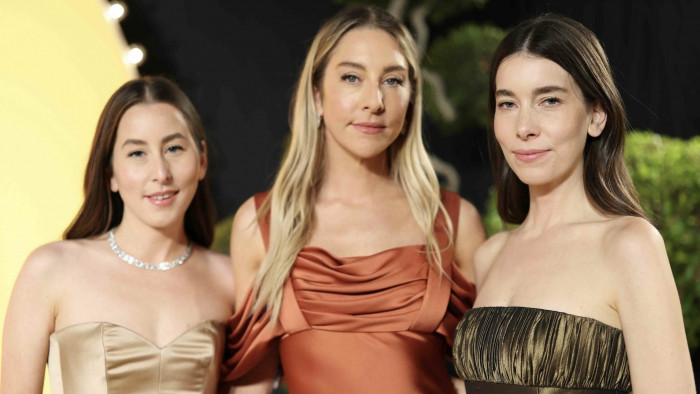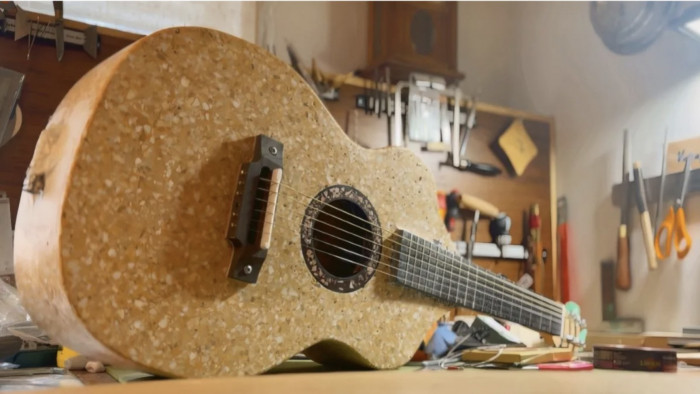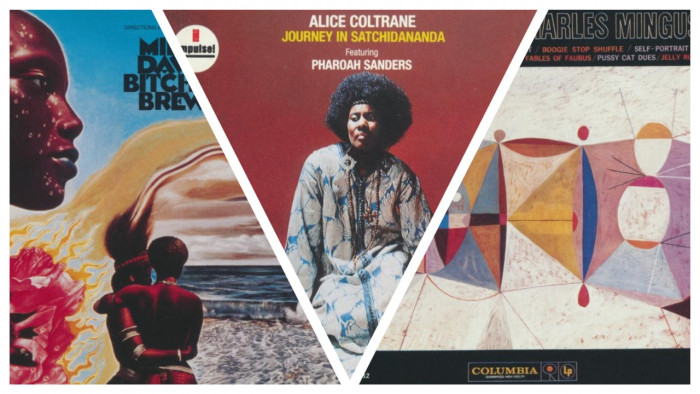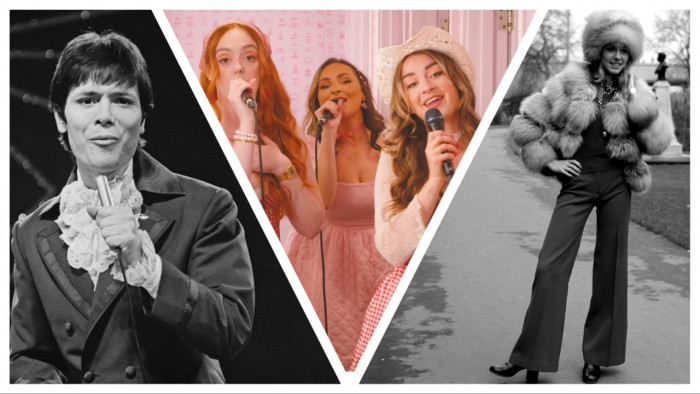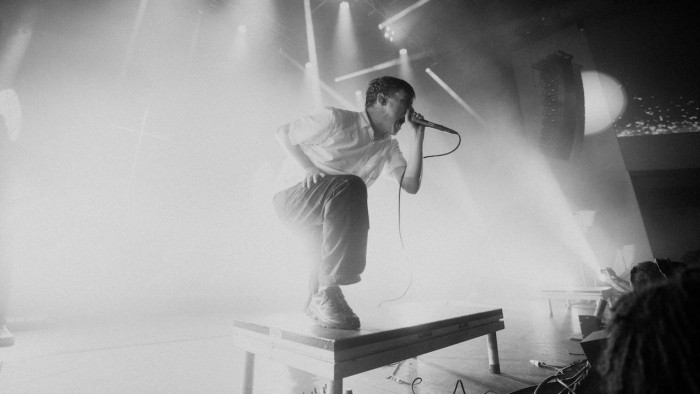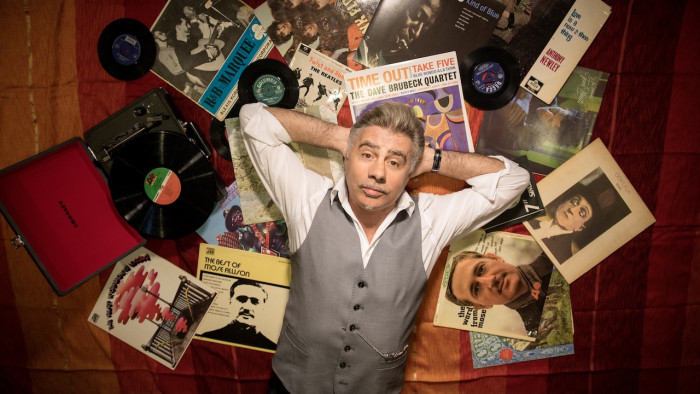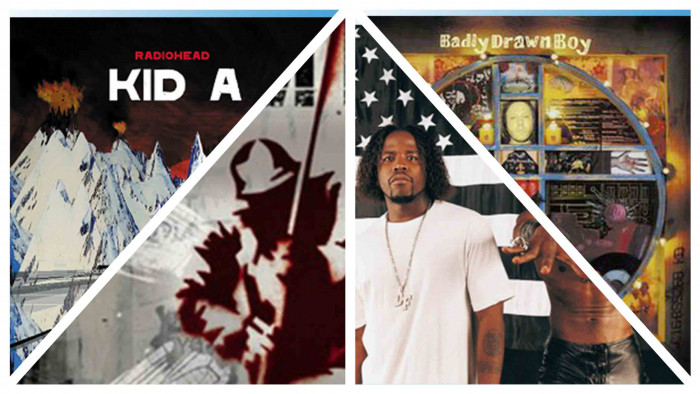Billy Steinberg: How I wrote Eternal Flame, I Drove All Night & I'll Stand By You
The legendary songwriter talks us through his hit power ballads


Ultimate Power is a UK club night that plays nothing but power ballads and celebrates its tenth birthday this year. Co-founder Dave Fawbert spoke to Billy Steinberg (pictured above, right), the legendary songwriter behind a host of enormous power ballads written over the years
How do you go about writing a song - do you write with the artist in mind, or do you play about until something happens?
There are two very specific things in my process. One, I do not try to write with the artist in mind, unless I happen to be writing with the artist. For example, when we wrote Eternal Flame, we were writing the song with Susanna Hoffs, so it was for her to sing. But generally speaking, I'd rather try to write a song that I just really like and not try to tailor it for a particular artist. I've always written the lyrics ahead of the music, so I keep notebooks with lyrics and then when I get together with my songwriting partners I try to then put music to the existing lyrics.
So lyrics are obviously are very important - some musicologists say that the music grabs you first and the lyrics later, but do you think they're just as important, or more the lyrics in the case of the power ballad?
Well, I don't know that I would separate power ballads from other songs in terms of lyric importance but in general I think you could say that ballads, people tend to listen to the lyrics in ballads more than they do in uptempo songs - I would think that would be generally true. That in a ballad, the lyrics would be more focused on than they would be in uptempo songs.
So many of the huge power ballads have incredible titles - how important is the title for you? Have you written a song where the title comes first and then you work backwards?
Well, with Eternal Flame we started with the title. But usually I just write sort of in a stream consciousness manner and the title just comes out amidst the verses - but occasionally we'll start with a title.
After you've written the song, how much input into the production and the recording?
Back in the eighties and the nineties I generally did not have much input into the production of songs because my partner Tom Kelly (pictured above, left) and I would write a song, make a demo, give the demo to a record company, the record company, if they liked the song, would hand it to a producer and Tom and I would not have much input into production. But more recently, I've gotten involved in production, so I am more involved currently. But in the songs you're referring to - not so much.
So when say a song like Eternal Flame came back - as well as the song itself, there's so many incredible production features in there - the use of the triangle, the huge snare drum at the end - were you surprised by those features? Did you like them?
I thought that Davitt Sigerson, who produced Eternal Flame for the Bangles, did a great job. In fact, one of the things about that composition is that it was really written, in a sense, emulating some of the Beatles ballads like Here, There and Everywhere and For No One from the Revolver record. And one of the things about those types of songs is they rarely have choruses. So when we wrote Eternal Flame we didn't really feel we had a chorus - it was sort of one of those sort of very melodic, poignant Beatle-type songs where the title would have been interwoven into the verse or tagged on the end of the verse, but not with a chorus unto itself. But with Eternal Flame the producer, at the end of the song when he brings back the first verse and all the girls chime in, it's as if the verse transforms itself into a chorus.
Did you envisage that happening? Was it part of the demo?
On our demo, because we wrote that song with Susanna Hoffs, she sang the demo, but we did a very simple demo and we did bring the verse back at the end of the song - so that was part of the demo but we didn't have a huge build up of voices that gave it that chorus effect - that was something that the producer and the girls in Bangles came up with.
Moving on to Alone - which you recorded first with the I-Ten project - it was four years later that it was a number one - did you always feel that was going to be a hit record, despite the fact that it was four years between you guys cutting it and Heart doing?
Well, no, I didn't think it was going to be a big hit. If you listen carefully to the I-Ten version, the first line of the chorus is different, lyrically and melodically, than the first line of the chorus as the song was eventually recorded by Heart, so in between those two occurances, we were approached by somebody at Capitol Records saying that Heart was looking for a power ballad. And Tom suggested to me, "Well why don't we submit Alone?" And I was not that keen on it, and he wondered why. And I said well, "I've always felt that there was a problem with that song. And Tom asked me, "Well what do you think the problem is?" and I said, "Well, I hate the first line of the chorus". I thought it was very poorly written both in melody and in lyric and so Tom said, "Well why don't we just rewrite it?" and I said, "Ok, let's give that a shot". And we got together and we rewrote the first line of the chorus and then we made a new demo. So Heart and Capitol Records never heard the iTen version. What we submitted to Capitol Records and to Heart was this new demo that Tom and I made where we had rewritten the first line of the chorus.
So you think that could have been the difference - just that one line?
100 per cent. That made all the difference.
Moving on to I Drove All Night - obviously you originally wrote this for Roy Orbison but Cyndi Lauper came along, made it a hit - do you think having a woman sing it changed the perspective of the song to something you perhaps didn't expect?
No, I don't think that having a woman sing it really made it commercially viable. Cyndi Lauper's recording was the first one to be released. If you wanted to know the chronology of the different versions of that song - Tom and I wrote the song, we made a demo of the song with Tom singing it, then we got together with Roy Orbison and he sang on top of our demo - he recorded his vocals, but at the time he did not have a recording contract. So after the success of True Colours, we submitted I Drove All Night, our original demo with Tom singing it, to Cyndi Lauper. She recorded it, it became a hit for Cyndi, then a couple of years later, Roy had a big comeback, then he joined the Travelling Wilburys and then Roy passed away. Then we contacted Roy Orbison's label Virgin Records and we played them Roy's version of I Drove All Night and then they wanted to release it. So even though Roy recorded the song before Cyndi, her version was released well ahead of his.
I've always thought about that song - the 'gallup' feel of it is almost like something from Iron Maiden, it's almost a metal feel. Where did you get the feel for that track from?
I don't know, you'd have to ask Tom Kelly that because that was his idea, that sort of gallup.. but when we wrote this song, even before we ever met Roy Orbison, we were trying to write a Roy Orbison-type song. You could say that there are parts of the song that you could say were influenced by Running Scared, a 1960s hit for Roy.
That song for me is like a mini movie. You could probably say the same about Alone and Eternal Flame - it's a real storytelling thing. How much do you aim to do that - do you get more scope to do that in a power ballad as opposed to an uptempo track?
Well, like we said earlier, I do think people are able to follow a lyric more closely in a ballad, but I'm not conscious of trying to put more of a storyline into ballads than I am into uptempo songs.
I'll Stand By You - I think you wrote with Chrissie Hynde - what was the process of that song, because to me it's almost like a country song, with the chords and the feel?
I was a huge Pretenders fan before I ever wrote a song with Chrissie or before I ever met her. She was really one of my idols and when I had the chance to write a song with her, I was very conscious of wanting to write something that would be not only would be a great song, but would be appropriate for the Pretenders. I had prepared some lyric ideas and one of them was: "I'll stand by you". There were some lines in the song, in the lyric as I had written them, that Chrissie didn't feel were things that she would feel comfortable saying, so she did a bit of a rewrite on the lyric and then when Tom and Chrissie and I got together to write the music for it, I think Tom kinda led that. For example, the second verse it modulates down and then it modulates back for the second chorus, and that modulation was something that was Tom's idea. And he would tell you, because he's a big fan of the Beach Boys, that that's something that he heard in the song Don't Worry Baby by the Beach Boys. I guess that sort of gave him the idea - OK, you can do the first verse and the chorus and then start your second verse modulating down a step. And that sort of device that we employed in I'll Stand By You that gives the song a lot of dynamics and drama.
I always think that song - the middle 8 in that song. In all these songs there are great middle 8s. Do you think the art of the middle 8 has almost been lost a little bit these days when it's often just verse, chorus verse chorus or even just one riff all the way through?
Y'know I think the idea of a chorus has changed. Because Beatles songs - we all love the Beatles - and Beatles songs didn't really have choruses - at least most of them. The verses were so contagious and catchy that the title was often just tagged onto the verse. "We can work it out, we can work it out" - that's the title just tagged at the end of the verse - there isn't a full-blown chorus. So if you really just have the title tagged at the end of a verse, then you have to have a middle 8 because the song would be very short, because you really only have verses. So often in those types of songs, the middle 8 occurs not only once but twice in the song.
If you wanna talk about We Can Work It Out - "Life is very short and there's no time for fussing and fighting my friend" - that's the middle 8 and that does indeed happen twice in that song. And if you look at Eternal Flame, the section where it goes "say my name, sun shines through the rain", that section - in a very Beatles-esque way it happens twice during that song. And that device is used because you really don't have a chorus. But getting back to your original question, in today's music, choruses are so powerful that they have a new section that they refer to in songs as the 'post to the chorus'. So not only is there a big time-consuming chorus at the end of every verse, but most choruses now have a section tacked on to the end of it that they call the post. So by the time you have a verse and then a big long chorus and then a post, there's no room for a middle 8. So the middle 8 has sort of gotten edged out of songs.
The way you talk of verses, clearly you think verses are so important - they were the choruses - so does that mean when you approach writing a song, you have to get hooks in from second one? Is that the way you write?
Well I would say yeah. You try to write songs that are full of hooks, but looking at the four songs you're talking about - I Drove All Night, Alone and I'll Stand By You all have prominent choruses. Only Eternal Flame has that structure that doesn't have a formal chorus.
Can you believe these songs are still being played and enjoyed by people who were not even born when they came out. When you wrote them did you ever imagine that would be the case?
Well I think our goal in writing a song was to write a song that would have enduring popularity, so when I set out to write a song, I'm trying to emulate my favourite songs. And my favourite songs were songs from the 50s and the 60s and I'm still listening to them today, so I would have to say, one hopes that one's songs will still be popular 30 or 40 or 50 years after you write them, but you certainly can't expect that to happen.
You've written hits in all kinds of styles - but why do you think the power ballad affects people perhaps more than others? There was a period of time when an artists didn't get big until they had that power ballad, why do you think people respond to those slower, more emotional songs so much?
Well I don't know! I don't know if I really have an answer to it! I guess they're more dramatic and they're more emotional and people feel them perhaps more intensely. Uptempo songs inspire people to dance and they emphasise the rhythmic qualities, while ballads tend to emphasise the sentiments and the emotions that are being conveyed. I guess that's the best answer.
For more info on Billy Steinberg, visit billysteinberg.com
